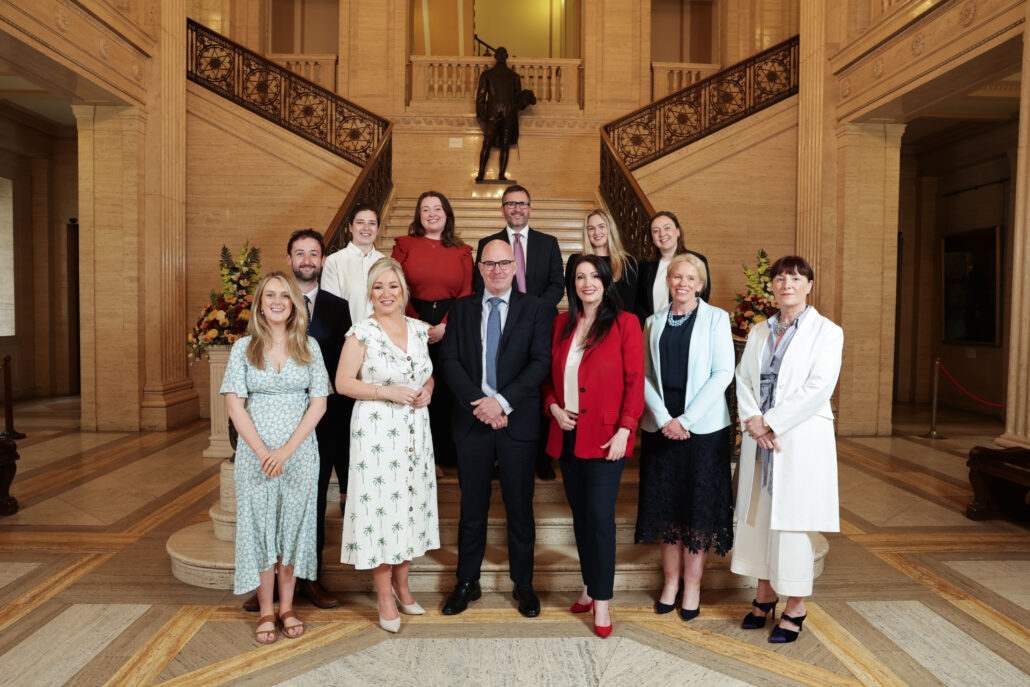An opportunity to reimagine leadership: Northern Irish leaders urged to apply for Fellowship
The Centre for Democracy and Peace Building has opened applications for its 2024/25 Fellowship Programme for leaders in politics, business, and civic society in Northern Ireland.

The Centre for Democracy and Peace Building has opened applications for its 2024/25 Fellowship Programme for leaders in politics, business, and civic society in Northern Ireland.
Now in its fourth year, the Fellowship Programme has over 70 alumni, including Finance Minister Caoimhe Archibald MLA. It invites 24 ambitious leaders on a seven-month journey to reimagine and pave a new, prosperous future for Northern Ireland. The programme seeks to support the peace process, foster innovation and capacity building, and encourage collaborative decision-making so that leaders across society are strengthened and equipped to navigate complexity and deliver real change for the benefit of all.
The Fellowship Programme is supported by the Department for Foreign Affairs and Trade, and the Irish American Partnership, as well as some of Northern Ireland’s biggest employers including Allstate NI, Camlin Group, FinTrU, Fujitsu NI, NIE Networks and Ulster Carpets. The programme aims to support and equip participants to take on some of Northern Ireland’s most complex political, business, and civic challenges.
Through bespoke sessions delivered by leaders in the top of their field including Oxford academics and diplomats, Fellows are challenged to step outside of their comfort zone and harness the spirit of possibility, tackling important issues such as climate and energy, policy and governance as well as taking part in the popular residential sessions at the University of Oxford and in Dublin.
This year’s Fellowship Programme was launched by the First and deputy First Ministers and Fellowship Advisory Board Chair, Darragh McCarthy at Parliament Buildings.
They were joined by alumni from last year’s programme; Cheryl Brownlee MLA for East Antrim, Jason Bunting, Parliamentary Advisor to Sinéad McLaughlin MLA, Dorinnia Carville, Comptroller and Auditor General at the Northern Ireland Audit Office, Gareth Edwards, Vice President for Compliance at FinTrU, Deborah Erskine MLA for Fermanagh and South Tyrone, Róisín Wood, CEO of Community Foundation NI, Chloe Ferguson, President of the National Union of Students UK in Northern Ireland, Áine Murphy MLA for Fermanagh and South Tyrone and Amy Gribbon, Manager of Forthspring Inter Community Group.
Fellowship Advisory Board Chair, Darragh McCarthy, said:
“The Fellowship Programme speaks for itself as a fantastic platform for ambitious Northern Ireland leaders, as witnessed by the talented group of people at this year’s launch at Stormont and our partners are proud once again to support the scheme for another year. It is brilliant to have the support of the First and deputy First Ministers for this important programme, to recognise the potential in bringing these cohorts together to spark new conversations about the future of Northern Ireland. I look forward to seeing what unique and varied skills the next Fellows will bring and how they will shape each other for the better as leaders in society.”
Applications for the 2024/25 Fellowship Programme will close on Wednesday 19 June. To apply or to find out more, please email fellowship@democracyandpeace.org or visit: fellowship.democracyandpeace.org
———————–
To keep up to date, follow our Twitter/X and LinkedIn accounts, as well as subscribing to our newsletter to get involved in future events.







